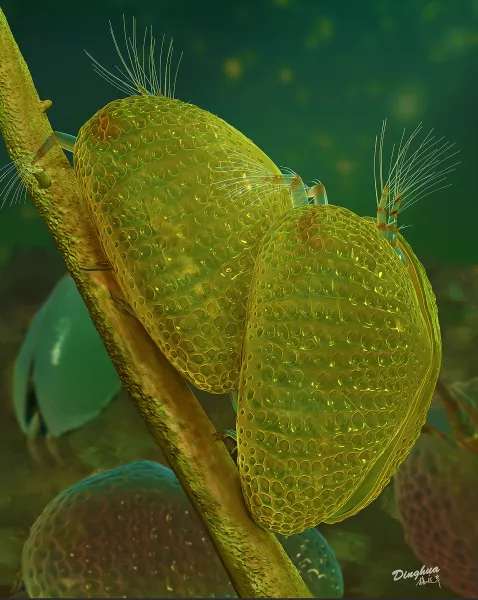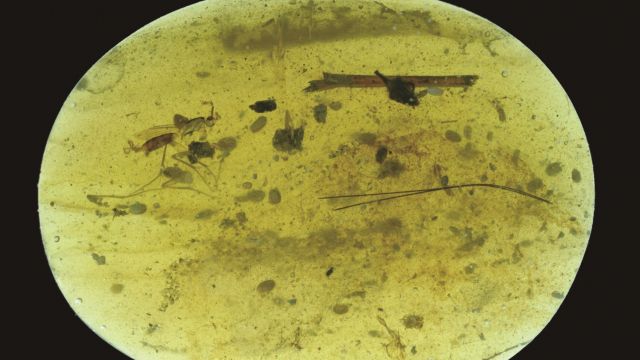The “spectacular find” was unearthed by an international team of palaeontologists preserved inside a female ostracod – a type of tiny crustacean that resembles a mussel.
Researchers believe the female mated shortly before becoming trapped in the resin.
They say the findings, published in the journal Proceedings of the Royal Society B, provide “an extremely rare opportunity” to learn more about the evolution of the reproduction process in animals.

Until now, the oldest known fossilised animal sperm was thought to have been found in a 50-million-year-old worm cocoon from Antarctica.
The researchers say the ostracod specimen belongs to a new species, dubbed Myanmarcypris hui.
They believe these creatures lived on the coast as well as inland waters of what is now Myanmar, surrounded by trees that produced huge quantities of resin.
A team led by Dr Renate Matzke-Karasz, a geobiologist at Ludwig-Maximilians-Universitaet (LMU) in Munich, analysed 39 specimens of ostracods trapped in a tiny piece of amber using 3D X-ray reconstructions.
The researchers discovered ripe giant sperm stored in a pair of sperm receptacles inside the female ostracod, waiting for the eggs to mature, in what could also be the earliest direct evidence of a completed insemination.

While a majority of male animal species, including humans, produce very large quantities of very small sperm to increase chances of fertilisation, there are exceptions.
Some creatures, such as fruit flies and modern-day ostracods, produce a small number of oversized sperm, with tails several times longer than the animal itself.
In these cases, the researchers say, chances of fertilising an ovum can increase with the size of the sperm cell.
Knowing more about how giant sperm cells evolved could shed light on what the researchers describe as “ancient and advanced instance of evolutionary specialisation”.
Dr Matzke-Karasz told the PA news agency: “The most significant part of our story is that we can now show that using giant sperm for reproduction is something that can last long in Earth history.

“Previously, we were not sure if animals that ‘switched’ to using these giant sperm at a certain point in their evolutionary history are doomed to become extinct very quickly.
“After all, these are enormous costs for the animals: large sperm must be produced, the reproductive organs are much bigger than in other species, they take up a lot of space in the animal, and mating lasts long.
“This is a lot of biological energy that must be allocated to reproduction – so you might think that this doesn’t make sense from an evolutionary standpoint.
“But in ostracods, it seemed to work for more than 100 million years.”
She added: “From an evolutionary point of view, sexual reproduction with the aid of giant sperm must, therefore, be a thoroughly profitable strategy.”







